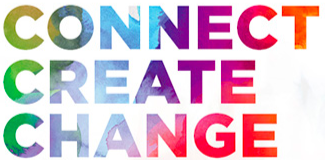- Home
- About Us
- The Team / Contact Us
- Books and Resources
- Privacy Policy
- Nonprofit Employer of Choice Award

 Reconciliation and indigenous issues were a common thread at the most recent Philanthropic Foundations Canada conference. This important area was covered throughout many of the breakout sessions and featured prominently in three plenary speakers’ remarks.
Reconciliation and indigenous issues were a common thread at the most recent Philanthropic Foundations Canada conference. This important area was covered throughout many of the breakout sessions and featured prominently in three plenary speakers’ remarks.
Roberta Jamieson, CEO at Indspire, asked funders to use not only a gender lens but an indigenous lens when considering their philanthropy. She said, “It’s time not only for truth and reconciliation but reconciliaction.” There is much talk about reconciliation but not yet much action or money to do the work necessary to make things better. This needs to change if things are going to get better for indigenous people in Canada. Funders need to recognize that one size does not fit all and that indigenous perspectives must be incorporated. Nothing for us without us".
Dr. Janet Smylie, professor, physician, and indigenous health expert, acknowledged that she lives in the world of evidence-based research. She has experienced firsthand how evidence-based research doesn’t value the same things that indigenous communities do and struggles with quantifying them because they can’t be captured in a randomized controlled trial (RCT). This leads to “relationships being lost in the measurement” and culturally biased data production. While there are no easy answers, Janet was emphatic that “the things that are easiest to measure are not going to solve the root causes.” Finding out how to collect good data – that is, not only evidence-based but inclusive of indigenous context and knowledge – will be critical to improving outcomes for indigenous people.
Lindsay DuPré, Youth Advisor at the Ontario Indigenous Youth Partnership Project, provided some critical feedback for funders – or as she put it, she “spilled the tea,” – with love and hope to help move Canadian philanthropy forward. Lindsay talked about how words like reconciliation, diversity, inclusion, indigenization, and deconsolidation are being appropriated by non-indigenous people and turned into buzzwords that get talked about around boardroom tables. She also mentioned how many people who think they’re doing good work to help indigenous people aren’t consulting with the communities they’re trying to help and don’t have the same understanding of what reconciliation means to indigenous people. Indigenous people are trying to work within the realm of philanthropy but are frustrated with the lack of action and funding to advance justice for indigenous communities in Canada.
Roberta Jamieson’s full remarks about reconciliation during the plenary session on Philanthropy’s Work: Empowering Women and Girls
Dr. Janet Smylie’s full remarks about evidence-based philanthropy in indigenous communities during the plenary session on The Possibilities and Pitfalls of Evidence-Based Philanthropy
Lindsay DuPré’s full remarks about funders working with indigenous communities during the plenary session on What’s Next for Philanthropy in Canada? An Intergenerational Conversation
Philanthropic Foundations Canada (PFC) is a member association of Canadian grantmakers, including private and public foundations, charities, and corporations. PFC hosts an annual conference for members and other grantmakers in Canada and across the world to exchange ideas, learn from each other, and discuss important issues. The 2018 PFC conference was held in Toronto on October 16-18, and focused on the themes of connection, creativity, and social change. For more information, visit the PFC website or PFC conference website. Thank you to PFC for providing Hilborn Charity eNews with a media pass to attend the 2018 PFC conference.